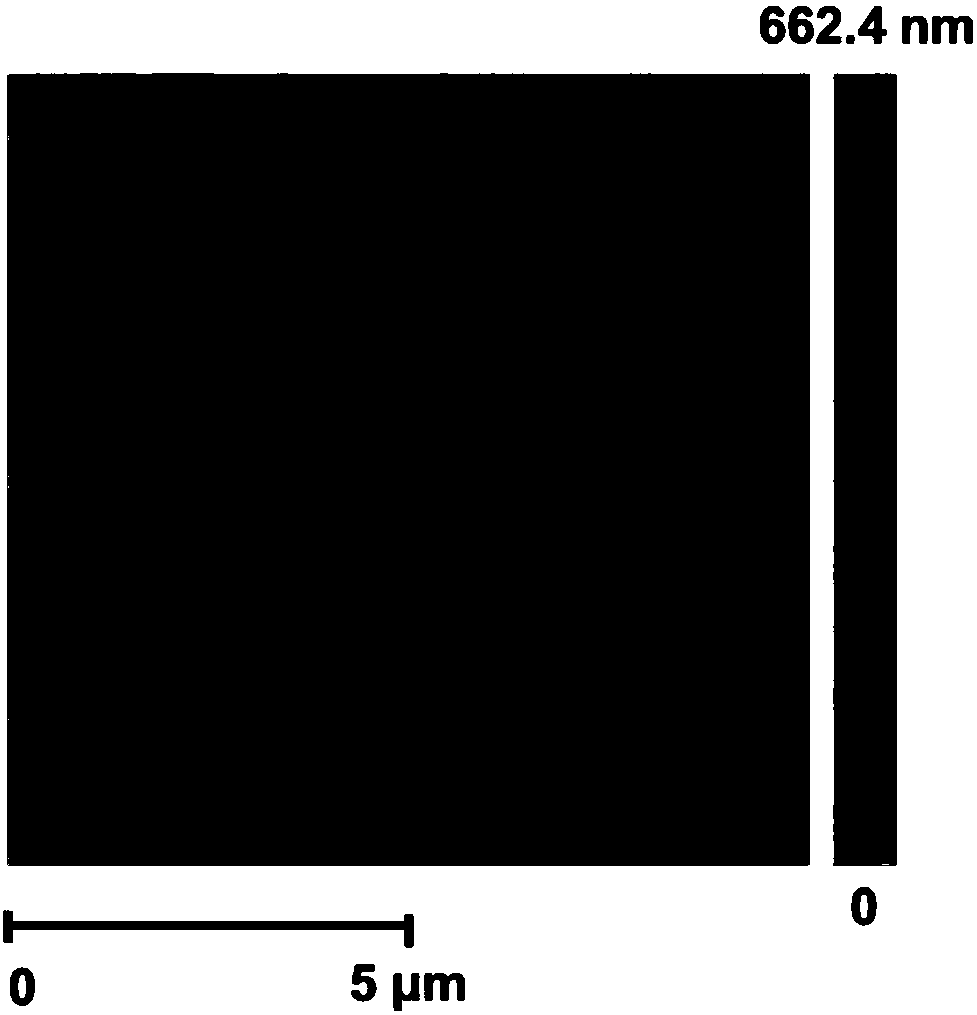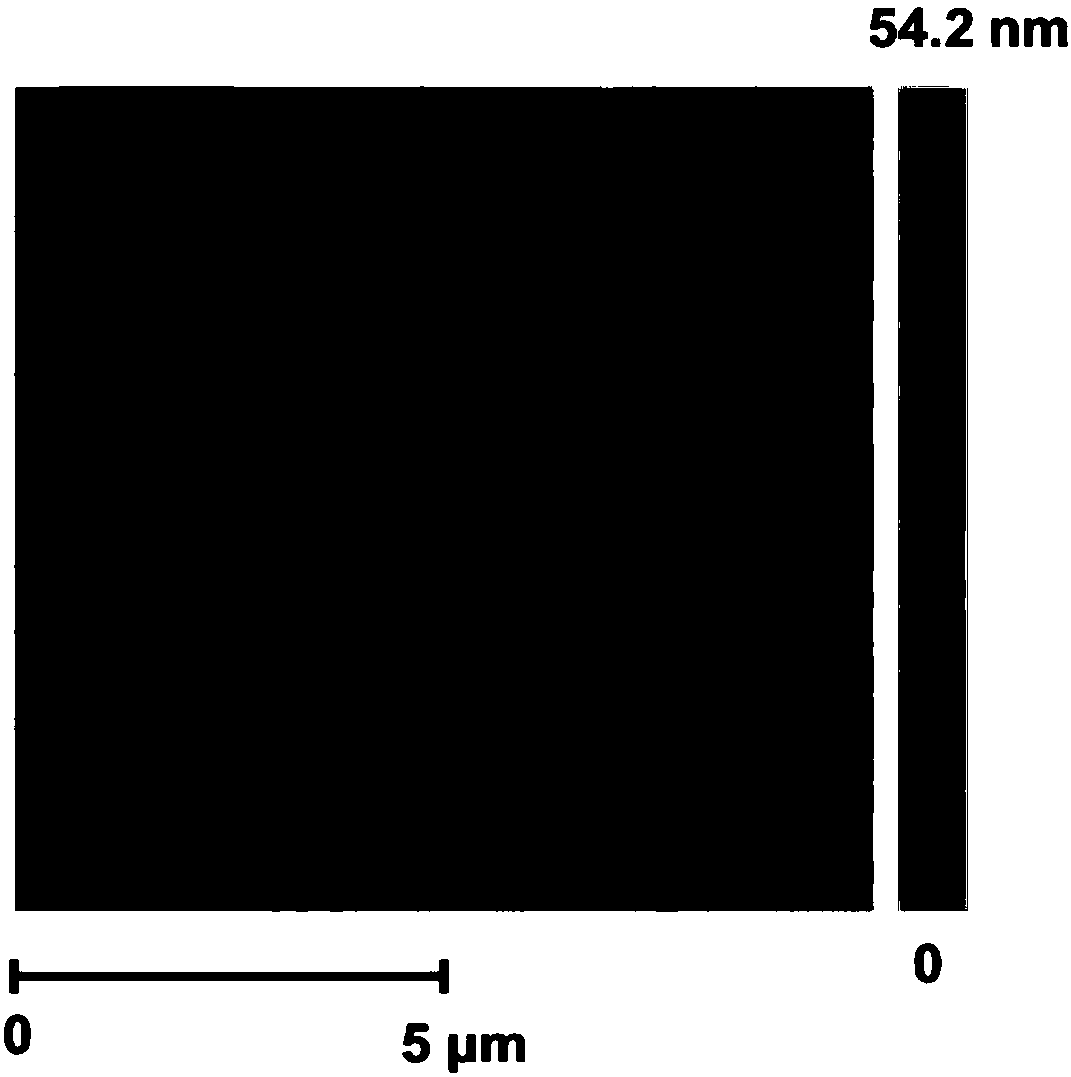Flexible transparent conductive composite film with low roughness and low square resistance and preparation method thereof
A transparent conductive, low roughness technology, applied in the field of optoelectronics, can solve the problems of low carrier injection and collection efficiency of optoelectronic devices, the coverage of the conductive area cannot be too high, and the photoelectric conversion efficiency of low fill factor, etc., to achieve a suitable large-scale Effects of production, good electrical and optical properties, good light transmittance and flexibility
- Summary
- Abstract
- Description
- Claims
- Application Information
AI Technical Summary
Problems solved by technology
Method used
Image
Examples
preparation example Construction
[0039] The preparation method for preparing the flexible transparent conductive composite film provided by the present invention comprises the following steps:
[0040] (1) Prepare a substrate, and coat a solution containing metal nanowires on the substrate to form a transparent conductive network film made of metal nanowires;
[0041] (2) heating removes the solvent in the above-mentioned transparent conductive network film, leaving only the conductive network formed by metal nanowires;
[0042] (3) On the substrate coated with the above-mentioned conductive network, evenly coat a layer of transparent polymer precursor solution, and in-situ solidify to form a transparent polymer film;
[0043] (4) peeling off the cured transparent polymer film from the substrate to obtain a primary composite film;
[0044] (5) Uniformly vapor-deposit or coat a transparent conductive layer on one side of the primary composite film having a conductive network composed of metal nanowires to for...
Embodiment 1
[0055] Such as figure 1 As shown, the ethanol dispersion of silver nanowires with an average aspect ratio of about 1000 was evenly coated on the glass surface with a squeegee bar, and the ethanol solvent was removed by heating, and the surface roughness was characterized by an atomic force microscope, and the square resistance was maintained at 10(±2)Ω / sq, visible light transmittance is 85%.
[0056] The fluorine-containing polyimide powder is dissolved in N,N-dimethylacetamide to prepare a fluorine-containing polyimide precursor solution with a mass ratio of 15%; then the fluorine-containing polyimide precursor solution is used The casting scraping method is used to cover the glass sheet, and the thickness of the precursor liquid is controlled to be about 200 microns.
[0057] The whole is placed in a blast drying oven for heating and curing. First, keep it warm at 60°C for 40 minutes, then use steps to raise the temperature to 90°C, 120°C, 150°C, 175°C, and 200°C for 40 min...
Embodiment 2
[0061] The silver nanowire aqueous dispersion with an average aspect ratio of about 300 is uniformly coated on a stainless steel belt by a slit coating method, and heated to remove moisture. The same fluorine-containing polyimide precursor solution in Example 1 is also used The slit coating method is used to coat the stainless steel belt with the silver nanowire conductive network, and the thickness of the precursor solution is controlled to be about 100 microns, and the subsequent process is the same as in Example 1.
PUM
| Property | Measurement | Unit |
|---|---|---|
| diameter | aaaaa | aaaaa |
| surface roughness | aaaaa | aaaaa |
| mean roughness | aaaaa | aaaaa |
Abstract
Description
Claims
Application Information
 Login to View More
Login to View More - R&D
- Intellectual Property
- Life Sciences
- Materials
- Tech Scout
- Unparalleled Data Quality
- Higher Quality Content
- 60% Fewer Hallucinations
Browse by: Latest US Patents, China's latest patents, Technical Efficacy Thesaurus, Application Domain, Technology Topic, Popular Technical Reports.
© 2025 PatSnap. All rights reserved.Legal|Privacy policy|Modern Slavery Act Transparency Statement|Sitemap|About US| Contact US: help@patsnap.com



